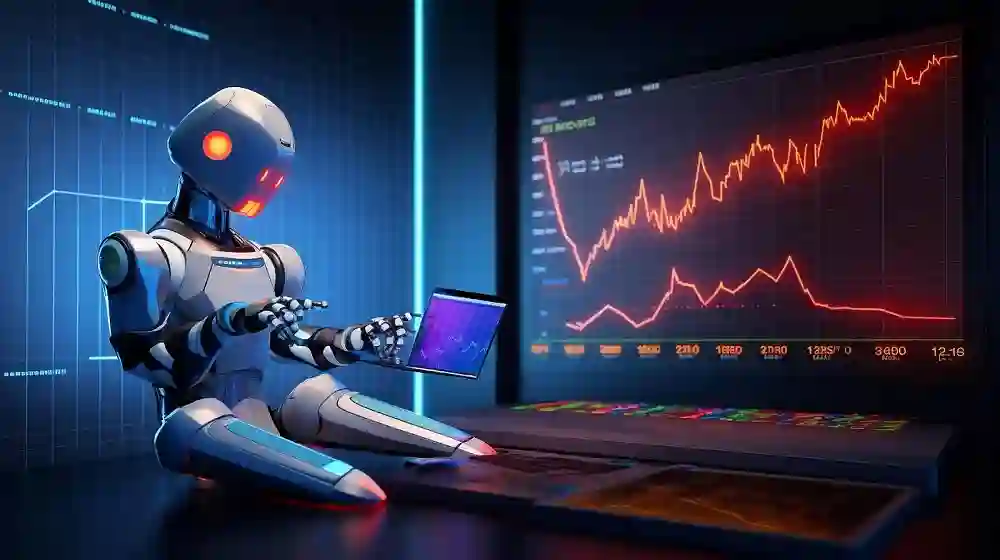Exploring Techgues Com: The Future of Technology and Innovation

Explore Techgues, Discover the future of technology and innovation, from AI and quantum computing to IoT and renewable energy, transforming our world. In a rapidly evolving world, the intersection of technology and innovation plays a pivotal role in shaping the future. As we stand at the threshold of unprecedented technological advancements, it is essential to delve into the trends, innovations, and future prospects that are set to revolutionize our lives. This article explores “Techgues” – the emerging and futuristic realms of technology and innovation – and how they are poised to transform various aspects of our world.
The Advent of Artificial Intelligence
Artificial Intelligence (AI) stands at the forefront of the technological revolution, driving significant changes across industries. AI’s ability to analyze vast amounts of data, recognize patterns, and make informed decisions has already begun to reshape sectors such as healthcare, finance, and manufacturing.
AI in Healthcare
In healthcare, AI-powered systems are revolutionizing diagnostics, treatment plans, and patient care. Machine learning algorithms can analyze medical images with incredible accuracy, aiding in the early detection of diseases such as cancer. Additionally, AI-driven predictive analytics can identify potential health risks in patients, enabling preventative measures and personalized treatment plans.
AI-powered virtual assistants are also enhancing patient experience by providing round-the-clock support, answering medical queries, and scheduling appointments. As AI continues to evolve, the future holds the promise of even more advanced and accurate healthcare solutions, ultimately leading to improved patient outcomes and reduced healthcare costs.
AI in Finance
The finance sector is another domain where AI is making significant strides. Algorithmic trading, powered by AI, allows for the execution of complex trading strategies at lightning speed, maximizing profits and minimizing risks. AI-driven chatbots and virtual assistants are transforming customer service in banking, providing instant responses to queries and enhancing overall user experience.
Moreover, AI-powered fraud detection systems are becoming increasingly sophisticated, identifying fraudulent activities in real-time and preventing financial losses. As AI continues to develop, the financial sector can expect even more efficient and secure operations, driving economic growth and stability.
The Rise of Quantum Computing
Quantum computing represents a paradigm shift in computational power, with the potential to solve complex problems that are currently beyond the reach of classical computers. Unlike classical bits, which can be either 0 or 1, quantum bits (qubits) can exist in multiple states simultaneously, thanks to the principles of superposition and entanglement.
Applications of Quantum Computing
The implications of quantum computing are vast and varied. In the field of cryptography, quantum computers have the potential to break traditional encryption methods, necessitating the development of quantum-resistant cryptographic algorithms. This shift will significantly impact data security and privacy.
In drug discovery and materials science, quantum computers can simulate molecular interactions at an unprecedented level of detail, accelerating the development of new drugs and materials. This could lead to breakthroughs in medicine, energy storage, and environmental sustainability.
Challenges and Future Prospects
While the potential of quantum computing is immense, there are significant challenges to overcome. Quantum computers are currently highly sensitive to environmental disturbances, requiring extreme cooling and isolation. However, ongoing research and advancements in quantum error correction and hardware development are steadily addressing these challenges.
As these hurdles are overcome, quantum computing will usher in a new era of technological innovation, enabling solutions to problems that were once thought insurmountable.
The Internet of Things (IoT) and Smart Cities
The Internet of Things (IoT) is transforming the way we interact with our environment, creating a network of interconnected devices that communicate and collaborate to enhance our daily lives. From smart homes to smart cities, IoT is driving efficiency, convenience, and sustainability.
Smart Homes
In smart homes, IoT devices such as smart thermostats, lighting systems, and security cameras work together to create a seamless and intelligent living environment. These devices can be controlled remotely through smartphones, allowing homeowners to monitor and manage their homes from anywhere in the world. Energy-efficient smart appliances also contribute to reduced energy consumption and lower utility bills.
Smart Cities
The concept of smart cities takes IoT to a larger scale, integrating technology into urban infrastructure to improve the quality of life for residents. Smart traffic management systems can optimize traffic flow, reducing congestion and emissions. IoT-enabled sensors can monitor air quality, water levels, and waste management, enabling more efficient resource allocation and environmental protection.
Furthermore, smart grids can enhance the reliability and efficiency of energy distribution, while smart public transportation systems can provide real-time information to commuters, improving the overall urban experience. As IoT technology continues to advance, the vision of fully connected and sustainable smart cities is becoming increasingly attainable.
The Evolution of 5G and Beyond
The rollout of 5G networks marks a significant milestone in the evolution of wireless communication, offering faster speeds, lower latency, and greater connectivity than ever before. This next-generation network is set to revolutionize various industries and pave the way for new technological innovations.
5G in Industry
In the industrial sector, 5G enables real-time monitoring and control of machinery and processes, leading to increased efficiency and reduced downtime. The concept of Industry 4.0, characterized by smart factories and interconnected supply chains, relies heavily on the capabilities of 5G networks.
5G in Autonomous Vehicles
The automotive industry is also poised to benefit from 5G technology. Autonomous vehicles require ultra-reliable and low-latency communication to operate safely and efficiently. With 5G, self-driving cars can communicate with each other and with traffic infrastructure in real-time, enhancing road safety and reducing accidents.
Future Prospects
Looking beyond 5G, researchers are already exploring the possibilities of 6G networks. While still in the conceptual stage, 6G is expected to offer even higher speeds, lower latency, and more advanced capabilities, further pushing the boundaries of technological innovation.
Advancements in Renewable Energy
As the world grapples with the challenges of climate change, advancements in renewable energy technologies are crucial for a sustainable future. Solar, wind, and other renewable energy sources are becoming increasingly efficient and cost-effective, driving the transition to a greener economy.
Solar Power
Solar power has seen remarkable advancements in recent years, with the development of more efficient photovoltaic cells and innovative solar panel designs. These advancements have made solar energy more accessible and affordable, enabling widespread adoption across residential, commercial, and industrial sectors.
Wind Power
Wind power is another key player in the renewable energy landscape. Advances in turbine technology have led to larger, more efficient wind turbines that can generate more electricity from the same amount of wind. Offshore wind farms are also gaining traction, harnessing the strong and consistent winds over the ocean to generate clean energy.
Energy Storage
One of the critical challenges of renewable energy is storage. Innovations in energy storage technologies, such as advanced batteries and supercapacitors, are addressing this challenge by providing reliable and efficient ways to store and distribute renewable energy. These advancements are essential for ensuring a stable and resilient energy grid, capable of meeting the demands of a growing population.
The Future of Biotechnology
Biotechnology is another field that holds immense promise for the future, with potential applications ranging from healthcare to agriculture and environmental sustainability. Advances in genetic engineering, synthetic biology, and bioinformatics are paving the way for groundbreaking innovations.
Genetic Engineering
Genetic engineering techniques, such as CRISPR-Cas9, have revolutionized the ability to edit genes with unprecedented precision. This technology has the potential to cure genetic diseases, enhance crop yields, and create organisms with desirable traits. In medicine, gene therapy is showing promise in treating previously incurable conditions, offering new hope to patients worldwide.
Synthetic Biology
Synthetic biology involves designing and constructing new biological parts, devices, and systems. This field has the potential to create biofuels, biodegradable materials, and even artificial organs. By harnessing the power of biology, synthetic biology is driving innovation in various industries, contributing to a more sustainable and technologically advanced future.
Bioinformatics
Bioinformatics, the intersection of biology and information technology, is enabling the analysis and interpretation of vast amounts of biological data. This field is critical for understanding complex biological systems, identifying new drug targets, and developing personalized medicine. As computational power continues to increase, bioinformatics will play an even more significant role in advancing biotechnology and healthcare.
The Impact of Blockchain Technology
Blockchain technology, originally developed for cryptocurrencies like Bitcoin, is finding applications beyond the realm of digital currencies. Its decentralized and secure nature makes it a valuable tool for various industries, including finance, supply chain management, and healthcare.
Financial Services
In the financial sector, blockchain technology is enabling faster and more secure transactions, reducing the need for intermediaries and lowering costs. Smart contracts, which automatically execute transactions when predefined conditions are met, are streamlining processes and enhancing transparency.
Supply Chain Management
Blockchain technology is also revolutionizing supply chain management by providing a transparent and immutable record of transactions. This enables real-time tracking of goods, ensuring authenticity and reducing the risk of fraud. By enhancing traceability and accountability, blockchain technology is improving efficiency and trust in global supply chains.
Healthcare
In healthcare, blockchain technology is being used to secure patient data, ensuring privacy and integrity. It also enables the sharing of medical records across different healthcare providers, improving coordination and patient outcomes. As blockchain technology continues to evolve, its applications are set to expand, driving innovation and efficiency across various sectors.
The Ethical and Societal Implications of Technological Advancements
While the future of technology and innovation holds immense promise, it also raises important ethical and societal considerations. As we embrace these advancements, it is crucial to address the potential challenges and ensure that technology benefits all of humanity.
Ethical Considerations
The development and deployment of AI, for example, raise concerns about privacy, bias, and accountability. Ensuring that AI systems are transparent, fair, and aligned with human values is essential for building trust and avoiding unintended consequences.
Societal Impact
The rapid pace of technological change also has implications for the workforce. Automation and AI have the potential to displace jobs, necessitating the need for reskilling and upskilling to prepare workers for the jobs of the future. Ensuring that technological advancements are inclusive and equitable is critical for avoiding social and economic disparities.
Regulation and Governance
Effective regulation and governance are essential for guiding the responsible development and use of technology. Policymakers, industry leaders with experience in executive leadership programs, and stakeholders must collaborate to create frameworks that promote innovation while safeguarding ethical standards and societal well-being.
Conclusion
The future of technology and innovation is both exciting and transformative, with the potential to address some of the most pressing challenges facing humanity. From AI and quantum computing to IoT and renewable energy, the advancements in Techgues are set to revolutionize various aspects of our lives, driving efficiency, sustainability, and prosperity.
As we navigate this rapidly evolving landscape, it is essential to embrace these innovations while addressing the ethical and societal implications they entail. By fostering a collaborative and inclusive approach, we can harness the power of technology to create a better future for all. The journey into the future of Techgues has just begun, and the possibilities are limitless.
















































































































































































































































































































































































